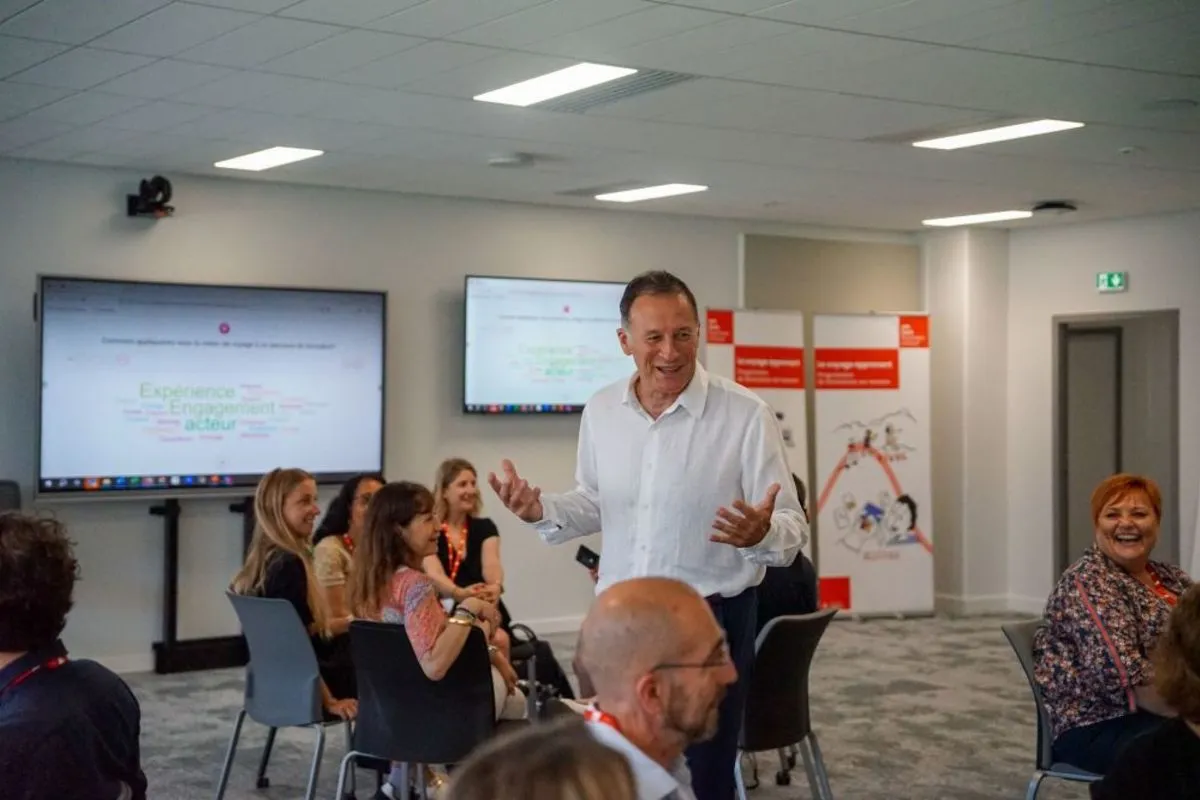Why develop custom training programs for employees?
In an increasingly complex and ever-evolving professional landscape, employee training has become a strategic imperative for businesses. Whether it's about developing technical skills, enhancing leadership, or improving the ability to manage uncertainty, custom training programs stand out as a particularly effective solution for achieving a company's specific goals. Unlike standardized training, these tailored programs are deeply integrated into the company's reality, addressing its unique needs and providing significant benefits for the organization's overall performance.
A precise adjustment to the company's needs
While standardized training can be effective in certain contexts, it often fails to address the unique characteristics of each company. A custom program, however, is specifically designed to tackle the challenges and objectives unique to an organization. It begins with a thorough analysis of the company's needs, allowing for the creation of a fully tailored learning path. This collaborative process ensures that the content and teaching methods used are perfectly aligned with the company's operational, strategic, and cultural context.
These programs do more than impart knowledge; they shape behaviors and develop skills directly applicable to employees' daily tasks. Practically, this results in more relevant training and, consequently, better knowledge retention. Employees can immediately apply what they have learned, maximizing the impact of the training on their everyday work. The custom approach also allows for a range of teaching methods, from in-person sessions to online modules, including collective intelligence workshops and simulations. This variety enhances learner engagement and motivation to complete the program.
A lever for transformation, adaptability, and social responsibility
In a professional world characterized by volatility, uncertainty, complexity, and ambiguity (VUCA), adaptability is crucial. Custom training programs are particularly effective in helping employees navigate these challenging conditions. They develop essential skills such as resilience, change management, leadership, and relational intelligence, which are crucial for thriving in a constantly changing environment.
By focusing on the specific needs of the company, these programs facilitate employee engagement in change processes. Employees become not just executors but key players in organizational transformation. This is especially true when training incorporates action learning approaches, which emphasize real-life scenarios like role-playing, serious games, group projects on actual company cases, or design sprints. By working on real projects, managers learn to collaborate, make real-time decisions, and manage resources under constraints, while generating solutions that can be immediately applied. Action learning can also be enhanced by artificial intelligence in some programs. This approach promotes better knowledge retention and directly applicable skill development while boosting participant engagement.
Furthermore, integrating Corporate Social Responsibility (CSR) considerations into custom training programs enables companies to train employees who are more aware of environmental and social issues. These trainings can include modules on sustainability, ethics, or resource management, aligning the skills developed with the company's CSR commitments. This alignment strengthens the coherence between the company's values and the daily actions of its teams.
Talent retention and development
The war for talent is a reality for many companies. Attracting and retaining top talent requires offering compelling professional development opportunities. A custom training program, by meeting the individual and collective needs of employees, plays a crucial role in this process. It helps identify and retain high-potential employees by providing them with a personalized development path.
These programs also enhance team cohesion by valuing each individual's expertise. Employees feel heard and valued, which increases their sense of belonging to the company. In turn, this reduces turnover and strengthens organizational stability. Additionally, by continuously developing their skills, employees stay at the forefront of innovations and new practices, which is a significant asset for the company.

Measuring impact and return on investment
Like any investment, a custom training program must be evaluated for its return on investment (ROI). Measuring this impact involves using relevant performance indicators defined at the start of the project. These indicators might include improvements in productivity, customer satisfaction, reduced absenteeism and turnover, or even the company's attractiveness during recruitment.
Evaluation tools such as pre- and post-training questionnaires, interviews, or skill assessments provide objective data on the benefits achieved. This allows for adjustments to the program to enhance its effectiveness and demonstrate its tangible value to the company. The Kirkpatrick Method, used to measure the impact and ROI of custom programs, assesses four levels: participant satisfaction (reaction), knowledge acquisition (learning), application in the workplace (behavior), and overall impact on the organization (results). This approach verifies whether learning objectives are met, optimizes the program, and demonstrates the training's concrete contribution to the company.
In a constantly evolving world, businesses must ensure that their employees possess the skills needed to tackle future challenges. Custom training programs, by directly addressing the company's specific needs, offer an effective solution for developing key skills, enhancing team adaptability, and retaining talent while sustaining change. These programs thus become a crucial lever for driving transformation and stimulating organizational growth.